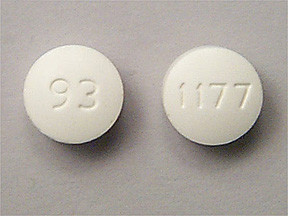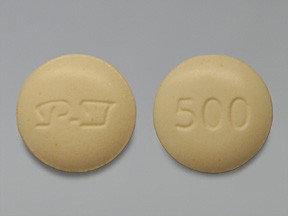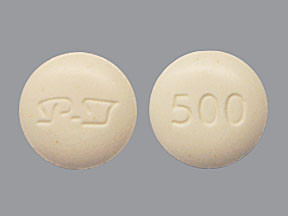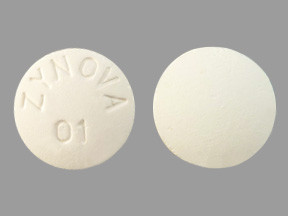NEOMYCIN TABLET - ORAL
PHONETIC PRONUNCIATION: (nee-oh-MY-sin)
COMMON BRAND NAME(S): Mycifradin
GENERIC NAME(S): neomycin sulfate
Uses
USES: This medication is used to decrease the risk of infection after certain intestinal surgeries. Neomycin belongs to a class of drugs known as aminoglycoside antibiotics. It works by stopping the growth of bacteria in the intestines. Neomycin may also be used along with a special diet to treat a certain serious brain problem (hepatic encephalopathy). This condition is caused by too much of a certain natural substance (ammonia). Normally, the liver gets rid of ammonia, but liver disease can cause too much ammonia to build up in the body. This medication helps treat encephalopathy by killing certain intestinal bacteria that make ammonia. This antibiotic treats only bacterial infections. It will not work for viral infections (such as common cold, flu). Using any antibiotic when it is not needed can cause it to not work for future infections.
How to use NEOMYCIN TABLET - ORAL
HOW TO USE: Take this medication by mouth exactly as prescribed by your doctor. To decrease the risk of infection after intestinal surgery, this medication is usually taken for 3 or 4 doses the day before surgery, or as directed by your doctor. Carefully follow your doctor's directions for any diet restrictions and using this medication or other products before surgery. For treating hepatic encephalopathy, this medication is usually taken four times a day for 5 to 6 days, or as directed by your doctor. Dosage is based on your medical condition and response to treatment. To decrease your risk of hearing loss and other side effects, take this medication at the lowest effective dose for the shortest possible time. Do not increase your dose, take it more frequently, or take it for a longer time than prescribed. The manufacturer recommends that this medication should not be taken for longer than 2 weeks during each treatment period. If you are taking this medication for hepatic encephalopathy, take it at evenly spaced times for the best effect. To help you remember, take it at the same times each day. Tell your doctor if your condition persists or worsens.
Side Effects
Precautions
Interactions
Overdose
Images
Reviews
Faq for NEOMYCIN TABLET - ORAL
Neomycin tablet is an antibiotic medication used to treat bacterial infections in the digestive tract.
Neomycin works by killing or inhibiting the growth of bacteria that cause infections in the gastrointestinal tract.
The common side effects of Neomycin tablet include nausea, vomiting, diarrhea, stomach cramps, and allergic reactions.
Neomycin tablet should be taken orally with a full glass of water. It is usually prescribed to be taken multiple times a day or as directed by your doctor.
Yes, Neomycin tablet can be taken with or without food. However, it is important to follow the instructions provided by your doctor.
Neomycin tablet is generally considered safe to use during pregnancy if the benefits outweigh the risks. However, it is always recommended to consult with your doctor before taking any medication during pregnancy.
It is generally not recommended to consume alcohol while taking Neomycin tablet, as it may increase the risk of side effects and reduce the effectiveness of the medication. It is best to avoid alcohol during the course of treatment.
Neomycin tablet is generally safe for use in children, but the dosage and duration of treatment should be determined by a pediatrician. It is important to follow their instructions and guidelines.
Yes, Neomycin tablet may interact with certain medications, including oral anticoagulants, diuretics, and muscle relaxants. It is important to inform your doctor about all the medications you are taking before starting Neomycin tablet.
Warning
WARNING: This medication can rarely cause serious kidney problems and nerve damage, resulting in permanent hearing loss (including deafness or decreased hearing) and balance problems. These serious side effects may occur even in people without kidney problems and taking usual doses. Hearing problems may occur long after neomycin has been stopped. The risk is increased if you are older, already have kidney disease, or if you have a severe loss of body water (dehydration). Your risk is also increased if you receive high doses, or with longer use of this medication. Tell your doctor right away if you notice ringing/roaring sounds in the ears, hearing loss, dizziness, or an unusual decrease in the amount of your urine. Severe muscle and breathing problems may also rarely occur. Careful monitoring by your doctor will reduce the risk of these side effects. Monitoring may include hearing, kidney, and urine tests. Avoid other medications that may increase your risk for these serious side effects if taken together with neomycin. See also Drug Interactions section.
Disclaimer
IMPORTANT: HOW TO USE THIS INFORMATION: This is a summary and does NOT have all possible information about this product. This information does not assure that this product is safe, effective, or appropriate for you. This information is not individual medical advice and does not substitute for the advice of your health care professional. Always ask your health care professional for complete information about this product and your specific health needs.




No Reviews Yet